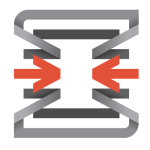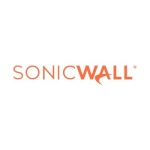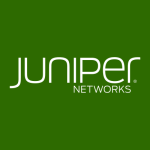What is our primary use case?
We use the solution for our data center firewall on-premises. We have deployed a VSX Cluster that currently holds three virtual firewalls. We have several site-to-site VPNs established with our partners and hundreds of policies applied.
We had a custom configuration in our previous policy for which we were passing traffic from one VPN tunnel to another transparently. With Check Point we had to create a new virtual firewall in order to keep it working, so from one firewall we ended up with two rerouting traffic from one firewall to another and changing NAT in order to keep this solution running.
Finally, we created another (third) virtual firewall and configured it to be only a remote access SSL VPN firewall and to be used as a backup if our primary in our HQ fails while the other two firewalls handle production traffic.
How has it helped my organization?
We selected this solution in order to replace the Cisco ASA we used to have.
The features the CP firewall has combined with a very attractive price led us to this decision. The migration was smooth and all the features we needed have been configured easily and worked as expected. Additionally, the SmartConsole and the Log Event viewer made our every day to day tasks easier.
Also, we were provided with a trial license for the compliance blade and the IPS which are truly amazing. I believe that the compliance blade will be used soon by our company in order to assist with the ISO certificate we are trying to get.
Since we have already deployed an AWAF on our premises we didn't use the IPS but the features presented definitely would increase the security level.
Although we use it as our data center firewall, it would be ideal for our HQ Office with all the security features it provides.
What is most valuable?
I appreciate the Smart Console for its ease of use and clarity in managing configurations. It's user-friendly and free of software bugs. Smart Console simplifies the management of current policies and objects, making it effortless to track an object's usage or identify unused objects, thus ensuring a tidy configuration.
Additionally, the hit count feature proves highly valuable, enabling policy prioritization based on usage frequency and facilitating verification of traffic alignment with newly created policies. Furthermore, implementing 2FA for SSL VPN users was a straightforward process, notably without the need for additional costs, unlike the FortiTokens required for our primary SSL VPN.
Additionally, the quick and seamless option to revert to a previous configuration revision is highly valuable. The logs tab serves as a helpful tool for troubleshooting.
It's worth noting that we've experienced no CPU or memory issues, and the system is highly responsive.
What needs improvement?
The only downside is that we are not able to have redundant VPN tunnels with our cloud environments. We tried many guides suggested by the CheckMates community and have not been able to easily capture packets in a PCAP file as we used to do with the ASDM Packet Capture Wizard.
Finally, in the past year, we faced severe downtime that lasted many days due to a misconfiguration. Support wasn't able to detect it. We are allowed to add an automatic NAT in an object and install it in all three virtual firewalls that we have. I cannot imagine a real case that needs this option. This option should be totally removed.
The destination MAC address for this object was flapping between the three virtual MAC addresses of the FW leading to a packet loss in our service up to 30%. Our manager found the root cause at the end.
For how long have I used the solution?
I've used the solution for three to four years.
What do I think about the stability of the solution?
In the past four years that we have had Check Point, we haven't faced any stability issues. It is a stable solution.
What do I think about the scalability of the solution?
Our cluster is oversized for our needs so we haven't reached any system limits in order to face an issue or at least observe its behavior. Our solution covers our current needs and can easily handle any additional load.
How are customer service and support?
Technical support is average. From my last experience, it was my manager who found the root cause of the downtime.
How would you rate customer service and support?
Which solution did I use previously and why did I switch?
As noted earlier, our transition to this solution marked a shift from our previous Cisco ASA Cluster setup. Check Point's prominent position in the network industry and the compelling price point offered made it too appealing to overlook.
How was the initial setup?
The initial setup and the configuration migration were done by an integrator who specializes in such migrations. It was complex enough yet very well-planned and organized.
What about the implementation team?
The implementation was done by a very qualified vendor team.
What was our ROI?
Since I am in the engineering department, I can't evaluate the actual income or costs of handling our production traffic with this solution.
What's my experience with pricing, setup cost, and licensing?
I'm not sure what was evaluated. It depends on the company's unique existing infrastructure and needs.
Which other solutions did I evaluate?
We evaluated offers for Cisco, Fortinet, and Palo Alto solutions.
Which deployment model are you using for this solution?
Hybrid Cloud
Disclosure: My company does not have a business relationship with this vendor other than being a customer.





















